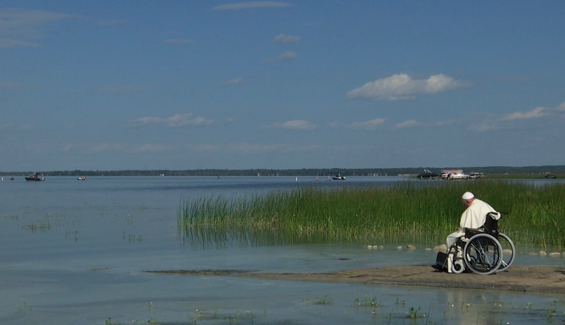A colleague called the other day to ask about reconciliation. No, we had not had a fight or a feud. He lives in Hawaii and works with thorny issues involving Native Hawaiian communities. He wanted to talk about my experience working with Native Americans on the mainland. Was reconciliation part of the mediation process and if so how did it work? We exchanged stories but came to no conclusions. We weren’t even sure how to define reconciliation. Did it need an apology? By whom? Written or spoken? How about a process for hearing stories, like the Truth and Reconciliation efforts? Should there be some legislation or memorials? An annual day of observance? Plaques, monuments? Should money – or land—change hands? All good questions, and all possible parts of the whole.

Today there is a lot of talk about reconciliation, in the US and other countries dealing with historical abuse and displacement of Indigenous people. The shocking boarding school deaths and mistreatment, (physically, psychologically, emotionally and spiritually) are the latest revelations, among many others, in Canada and the US. Indigenous groups demand justice, compensation, reconciliation; government representatives seem often paralyzed, not knowing what is needed, who should provide it and how to go about it.
The subject is huge, and I have a good book to recommend if you want to delve in to reconciliation between Indigenous people and colonial settler descendants: Margaret Jacobs’ “After 100 Winters.” She analyzes reconciliation processes in Australia, Canada and the US over the past decades and finds things to praise and to challenge. Generally she suggests there are several parts to a successful reconciliation: an formal apology, a process for hearing the stories of abuse, and a change in the status quo. In other words there must be action to prevent history from repeating itself. Otherwise, the apology means nothing, the stories that were so painful for the tellers to share were wasted, and the abuse, in a sense, continues. The “settlers” as Jacobs calls all of us who colonized from Europe, feel relieved of guilt and our victims feel worse. They have suffered once again from a broken promise.
This may sound harsh. So many of us want to say, “I never abused those people,” “My people didn’t arrive until the 1930s,” “I’m not a colonist. I just happened to be born here.” “Don’t blame me.” I understand that reaction. I struggle not to go there myself. But the truth is we are all part of the web, and says Jacobs, we can all be part of the reconciliation. She has amazing, inspiring stories of creative ways Whites and Natives are working together to “make it right,” or at least better.
I have experienced in my own work small moments of reconciliation. The focus may be on a revised forest plan, or a policy for consulting with tribes, or the cleanup of contaminated Tribal land. We are not there to reconcile, but how we treat each other, what we say and more importantly how we listen, what decisions are made – all of that can contribute to a tipping of the scales.
I was so moved by this picture, above, of Pope Francis, taken by photo journalist Antonio Denti. The Pope is in Canada at Lac Ste Anne, a lake considered both holy by the Catholic Church and sacred by the Indigenous and Metis. Pushing himself through poor health he was determined to make the trip and to show his sincere regret for the actions of the Church he leads. His apology was strong, but he took an additional step to honor the Native people. He traveled to visit to a site of great importance to Catholics and Indigenous people alike, and in solitude connected with that sacred body of water, or so I imagine. I know that for land-based people whose connection to land, water and natural resources is deep, it is very meaningful to have those with whom you are negotiating make a visit and experience the power of that place. I’ve seen a simple field trip change dynamics at the table.
Even the smallest gesture can be significant. In an earlier post I described a Regional Forest Service meeting to update tribal representatives on a variety of projects – wildfire control, grazing permits, log cutting, etc. When it was lunchtime, the audience of 50 or so tribal members stood up and headed for the door and the nearest fast food place. But to their surprise Forest Service folks were laying out a great spread on two long tables — main dishes, salads, bread, desserts all homemade, brought from home. Consciously or subconsciously I think we all realized that the federal government hosts were making an effort to reciprocate for the many feast days they had probably enjoyed at local Pueblos. They were tipping the scale ever so slightly in the direction of reconciliation.
In Jacobs’ book she offers examples of big steps: landowners in the Midwest giving land back to a displaced Tribe, towns that tax themselves to create a fund to compensate Tribal neighbors for lost land and resources. These are impressive actions and hopefully they will multiply. But in the meantime, just by being aware and committed, we can make small steps in the right direction. A pan of lasagna, a fresh green salad, a plate of brownies. How hard is that?


Always love your insight Lucy. Thank you for sharing. Cheryl
So happy to hear from you, Cheryl. Would love to chat about all this sometime. You are the expert!
Yes, the food thing! Many collaborative processes for which I have served as facilitator/mediator included break snacks and lunch – either provided by staff of the the host agency, or catered and paid for by the convening agency. I have seen so many relationships shift over time, at lunch. Which is why, notwithstanding the benefits of Zoom, I really miss in-person FTF gatherings!
Amen! One problem is that federal law prohibits federal agencies from providing food, drink, gifts to participants. So if it’s a federal agency everyone knows they are on their own.
when the shoe is on the other foot, those meals are not paid for by the hosting partner or tribe, but donated by the individual. What’s the harm in hoping agency employees will be similarly hospitable?
Thanks, Marcia. That’s a great point, and it emphasizes the human to human connection. At our most basic, we are not a federal employee or a tribal member or a self-employed mediator. We’re humans sharing space and, if we’re lucky, food.
Reparation is such a confusing subject and so deeply felt. Thank you, Lucy, for writing this and for, in your last paragraph, giving examples of how we humans can respond to one another in meaningful, compassionate, ways.
Thank you, Dana… for the comment, and for the gift of food made with such love. I’ve been on the receiving end many times!
Thank you, Lucy, for a moving portrayal both of steps towards progress and how to name false pretenses for same. I believe breaking bread together is a necessary step towards building multicultural human connections, which we ignore at our own peril. That indigenous (and indigenous-derived) cultures are more adept at this practice is something I have observed with great sorrow. It is difficult to trust the intent of someone who doesn’t feel comfortable sharing a meal with you.
So well said, Rhea. Thank you.